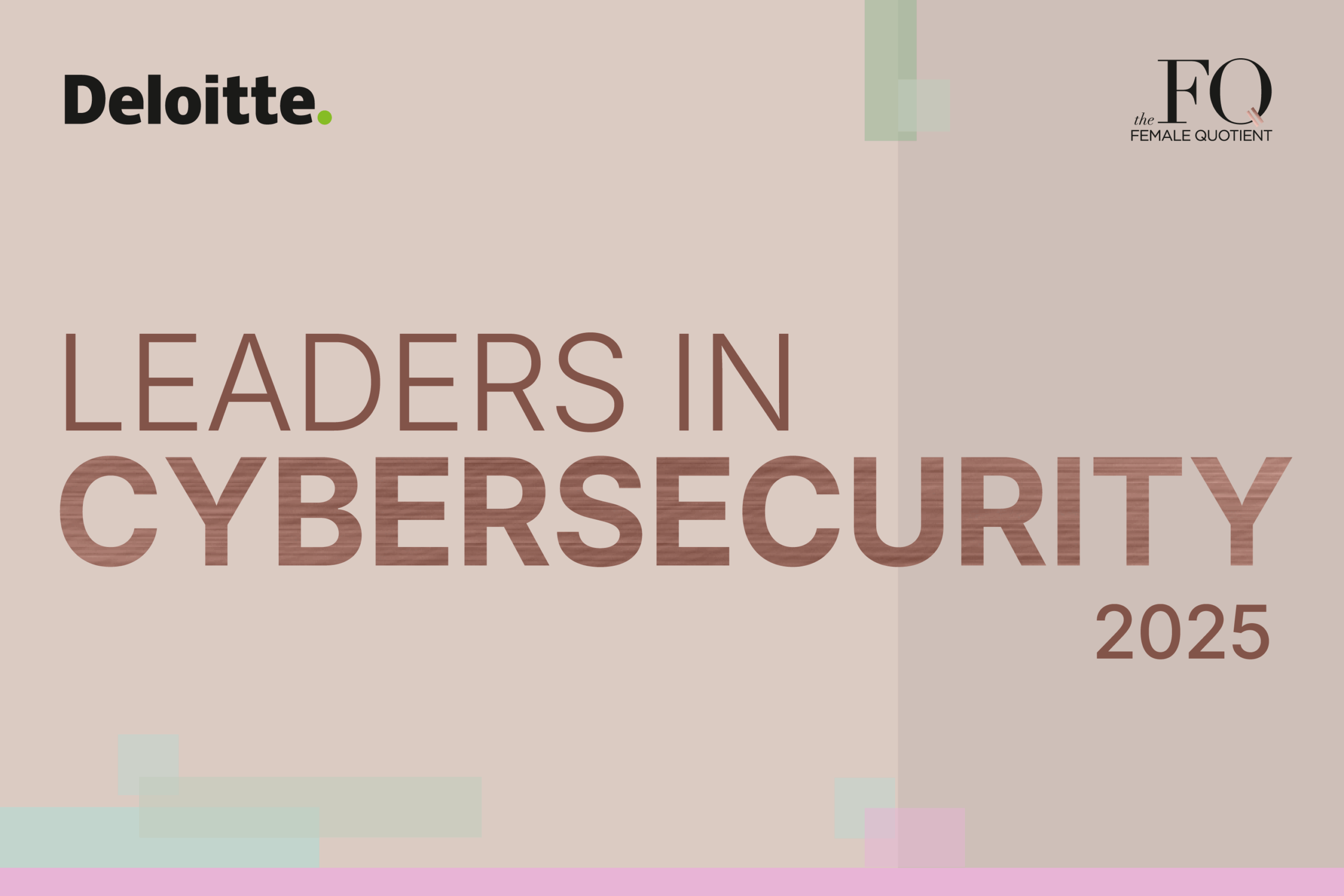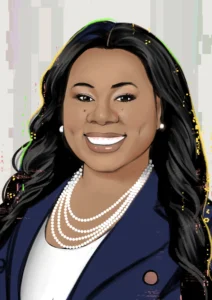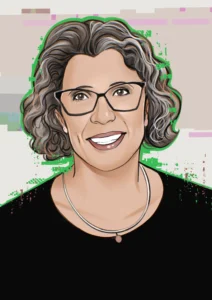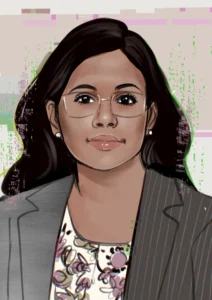
Maria Thompson
“Don’t second guess opportunities. Basically, start before you are ready!”
Maria Thompson doesn’t just rise to a challenge, she runs towards it. With more than 20 years of tech know-how under her belt, she’s done it all: IT, risk management, strategic planning, and cyber defense. She even made history as North Carolina’s very first State Chief Risk and Security Officer. And before that? She spent two decades in the US Marine Corps, climbing the ranks to become the Corps’ Cybersecurity and Information Assurance Chief. Through it all, Maria’s mission has never changed: push boundaries, break new ground, and keep networks secure.
What is one skill, interest or talent of yours that makes you great at your job?
My overall passion for anything cyber, and my deep desire to see organizations succeed in protecting their assets.
What is the best piece of unconventional career advice you’ve gotten?
Don’t second guess opportunities. Basically, start before you are ready!
What is your proudest moment working in the cybersecurity industry?
Achieving the rank of Master Gunnery Sergeant, and the role of Information Assurance Chief for the Marine Corps. In that role, I was awarded the US National Security Agency (NSA) Frank B. Rowlett Award for Individual Achievement. It was my first recognized award in cybersecurity, and was focused on efforts during my deployments to Iraq.
When did you become interested in pursuing a career in cyber and what prompted it?
I became interested in cyber during my career in the Marine Corps. The Marine Corps was one, if not the first, military branch to create an official military occupational specialty (MOS) focused on cyber and the protection of military networks. As a former Communications Chief in the Marine Corps, security was always needed, but not necessarily fully understood. The creation of this new MOS offered me the opportunity to scope my efforts and passion towards protecting the warfighter network. The role appealed to my desires to support the protection of the greater good.
What are the top 3 things you would tell people hoping to enter the cybersecurity industry?
- Make continuous learning a key focus of your efforts.
- Believe in yourself.
- Seek out those who can help you grow in the industry. Build your network.
What are some misconceptions people might have about the cybersecurity industry and what can we do to change these misconceptions?
A familiar misunderstanding is that cyber is only 1s and 0s. Cyber is far more expansive, and it’s worth taking the time to deep dive to understand where your talents can be an asset. To change this misconception, we need to collectively promote the non-traditional cyber roles so that potential cyber professionals can see the art of what’s possible.
Do you feel like you’re contributing to helping keep our world secure and can you share why that matters to you?
Yes, I absolutely do. In my role at AWS, I work to bring awareness to the risks and mitigation efforts that can be applied to an organization, addressing people, processes, and technology. This is important to me because I am first and foremost a citizen servant. My desire to help and be part of the solution far outweighs the importance placed in other areas. I believe that it takes the collective of private and public partnerships to win in cyber warfare.
What positive change do you think will take place as we bring the next generation into the cybersecurity industry?
I believe we will see an emphasis on expanding the cybersecurity curriculum more broadly into K-12 schools, which will lead to a cyber-ready workforce.
Who is your role model in the cybersecurity industry and why?
I would have to say it was Former Director of the Cybersecurity and Infrastructure Security Agency (CISA), Jen Easterly. The role she held was extremely complex when navigating private and public sector entities and associated authorities. She was, along with her team at CISA, very instrumental in giving the Federal Government a face and a place that organizations could look to for cybersecurity support. There was no longer this murky understanding of where the government stood when it came to cybersecurity efforts.







